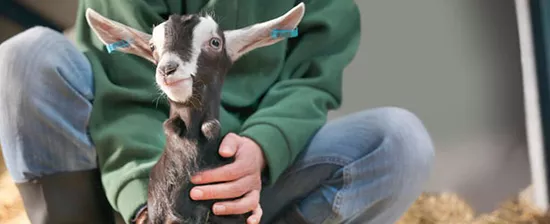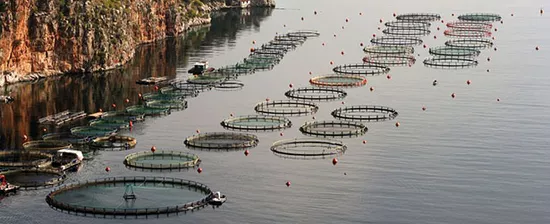‘Food safety is everyone’s business, now and in the future’ – celebrating World Food Safety Day 2020

Food safety is a shared responsibility and EFSA is celebrating the second World Food Safety Day on 7 June 2020, together with our national, European and international partners, including the UN event sponsors Codex Alimentarius, the Food and Agriculture Organization (FAO), and the World Health Organization (WHO).
We are united in working to raise awareness of this vital issue and inspire action that helps prevent, detect and manage foodborne risks, contributing to food security, human health, economic prosperity, agriculture, market access, tourism and sustainable development.
Food safety is often taken for granted. While 2 in 5 Europeans are interested in food safety, only 1 in 5 say it is their main concern when choosing food. It is often invisible unless you get food poisoning. Unsafe food containing harmful bacteria, viruses, parasites or chemical substances causes more than 200 diseases – ranging from diarrhoea to cancer.
EFSA’s Executive Director, Bernhard Url, said: “For World Food Safety Day 2020 we want to focus on three important features of the EU food safety system – implementing a One Health approach, sustainable food systems and the shared responsibility of food safety.
“These are important features of the EU food safety system where European and national organisations together with our many stakeholders help to make Europe’s standards of food safety, animal health and welfare, and environmental protection among the highest in the world.”
EFSA supports implementing a “One Health” approach because it improves food safety.

- Quick fact: DYK both food hygiene (68%) and animal health (65%) are among the most familiar food safety topics for EU citizens?
The basis of a One Health approach is that the health of people is connected to the health of animals and the environment. Sick animals and a spoilt environment will eventually impact upon the safety of food and have consequences for people’s health.
“The COVID-19 pandemic An epidemic that becomes very widespread and affects a region, continent or the whole world is a timely reminder of the dangers posed by pathogens and the importance of good hygiene practices,” Mr Url said. “Although food is not the source or a vehicle of transmission of COVID-19, the emergency has shown all too painfully the impact these diseases can have on public health and socio-economic wellbeing.”
Another area of concern is the continuing upward trend of antimicrobial resistance The ability of microorganisms (such as bacteria, viruses, fungi) to survive exposure to antimicrobials. This phenomenon, driven largely by the overuse and misuse of antimicrobial agents (e.g. antibiotics, fungicides used as plant protection agents, etc), makes infections harder to treat and poses a significant threat to public health. (AMR) to antibiotic medicines. According to the European Commission, AMR Abbreviation of “antimicrobial resistance” (see “antimicrobial resistance”). is responsible for an estimated 33,000 deaths per year in the EU and costs the EU €1.5 billion per year in healthcare costs and productivity losses.
EU agencies including EFSA, the European Centre for Disease Prevention and Control (ECDC) and the European Medicines Agency (EMA) together with the Commission and our partners in the Member States are implementing a One Health approach in the EU. This enhances early detection and monitoring, to fight the threat of antimicrobial Substance used to kill microorganisms or inhibit their growth/multiplication. Antimicrobials such as antibiotics are commonly used in human and veterinary medicine to treat a wide variety of infectious diseases -resistant zoonotic A term given to diseases and infections that can be transmitted between animals and humans infections and pathogenic bacteria on fruits and vegetables from contaminated soil or water and on animal-sourced food.
Investing in sustainable food systems pays off so the EU aims to promote a sustainable environment for safe food.

- Quick fact: three of the most common food safety concerns for Europeans are misuse of medicines in farm animals (44%), pesticide Substance used to kill or control pests, including disease-carrying organisms and undesirable insects, animals and plants residues in food (39%), and environmental pollutants (37%)
Our food comes from our countryside, rivers and seas so keeping our soil, air and water clean and fit for life is fundamental. The European Commission recently launched the EU’s new Farm to Fork Strategy, placing food production and consumption firmly at the heart of the European Green Deal with the aim of making food systems fair, healthy and environmentally friendly.
A reduction in the use of pesticides is one of several important new proposals in relation to food production and agriculture. In the EU, use of pesticides is closely regulated and the substances in them are assessed for their impact not only on health but also on biodiversity A term used to describe the variety of living organisms existing in a specific environment. These assessments are regularly repeated to ensure that the most recent scientific information is taken into account.
Climate change too can affect our ecosystems with consequences for food safety and nutrition The science of how diet relates to the body's need for sustenance. Early warnings about a range of risks emerging or increasing as a result of climate change – such as new plant pests, emerging biotoxins, disease-causing pathogens – is essential to protect our food supply and our environment. Changes in temperature and humidity can also affect soil quality, with consequences for the nutritional content of crops.
Also, food chain safety is affected by how humans treat animals, particularly food-producing animals. Stress factors and poor welfare can lead to increased susceptibility to disease among animals. That is why the EU has established animal welfare standards that are among the highest in the world.
EFSA, its EU and national partners work together to provide safe and sustainable food so consumers can ensure a suitable intake The amount of a substance (e.g. nutrient or chemical) that is ingested by a person or animal via the diet of nutrients that promote long-term human health and development.
In Europe, food safety is a shared responsibility from farm to fork, ensuring food safety standards that are among the highest in the world.

- Quick fact: In Europe trust is highest in scientists (82%) and consumer organisations (79%) for information on food-related risks, followed by farmers (69%), national authorities (60%), EU institutions (58%) and NGOs (56%)
Cooperation is one of Bernhard Url’s favourite topics. He said: “There is no doubt that food safety in Europe is a shared responsibility. Cooperation not only helps share the workload and the necessary resources, but also provides the network to channel information and best practice so that everyone in Europe can benefit from the EU system.”
For example, good hygiene practices in the food and agricultural sectors help to reduce the emergence and spread of foodborne diseases. Food safety education helps consumers to make informed and healthy choices and push for a safer food supply.
The framework for these conditions depends on scientific advice from EFSA and the Member States, working with policymakers and practitioners to ensure a sound scientific basis for food safety decision-making and advice.
Dr Url added: “If we intensify our cooperation even further – with the European institutions, our national and international partners and all our many stakeholders from scientists and consumers to food producers and civil society organisations – we can continue to deliver food that is not only safe but also more sustainable for Europe, now and in the future.”
*Figures: Eurobarometer on food safety in the EU, 2019
How to contact us
EFSA Media Relations Office
Tel. +39 0521 036 149
E-mail: press [at] efsa.europa.eu (Press[at]efsa[dot]europa[dot]eu)
(Only if you are a member of the press)
Ask a Question Service
You have a question about EFSA’s work? Contact our Ask a Question service!